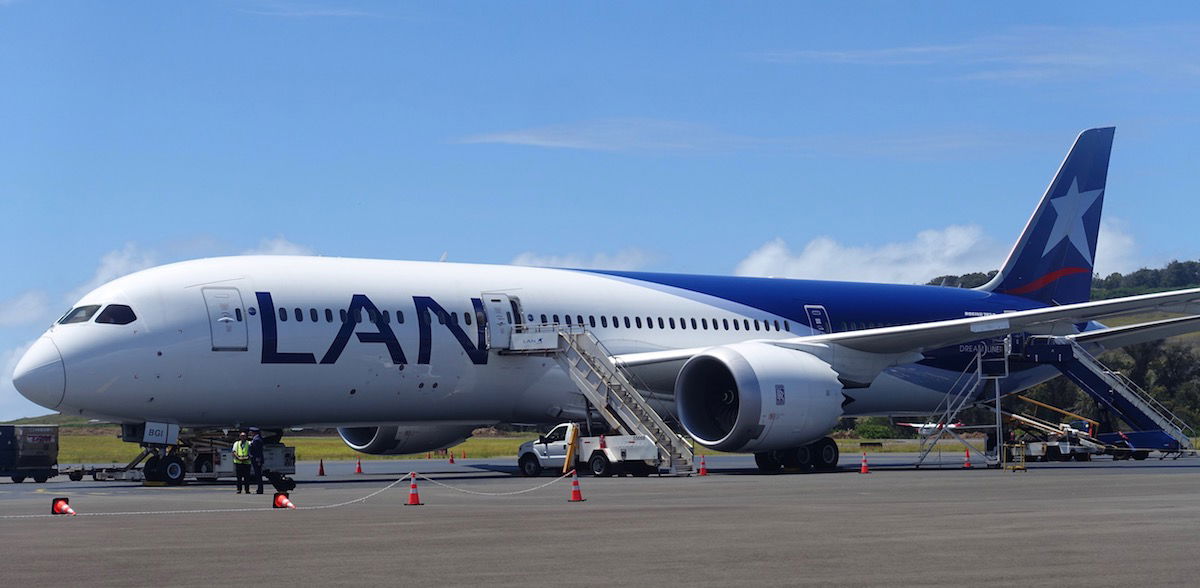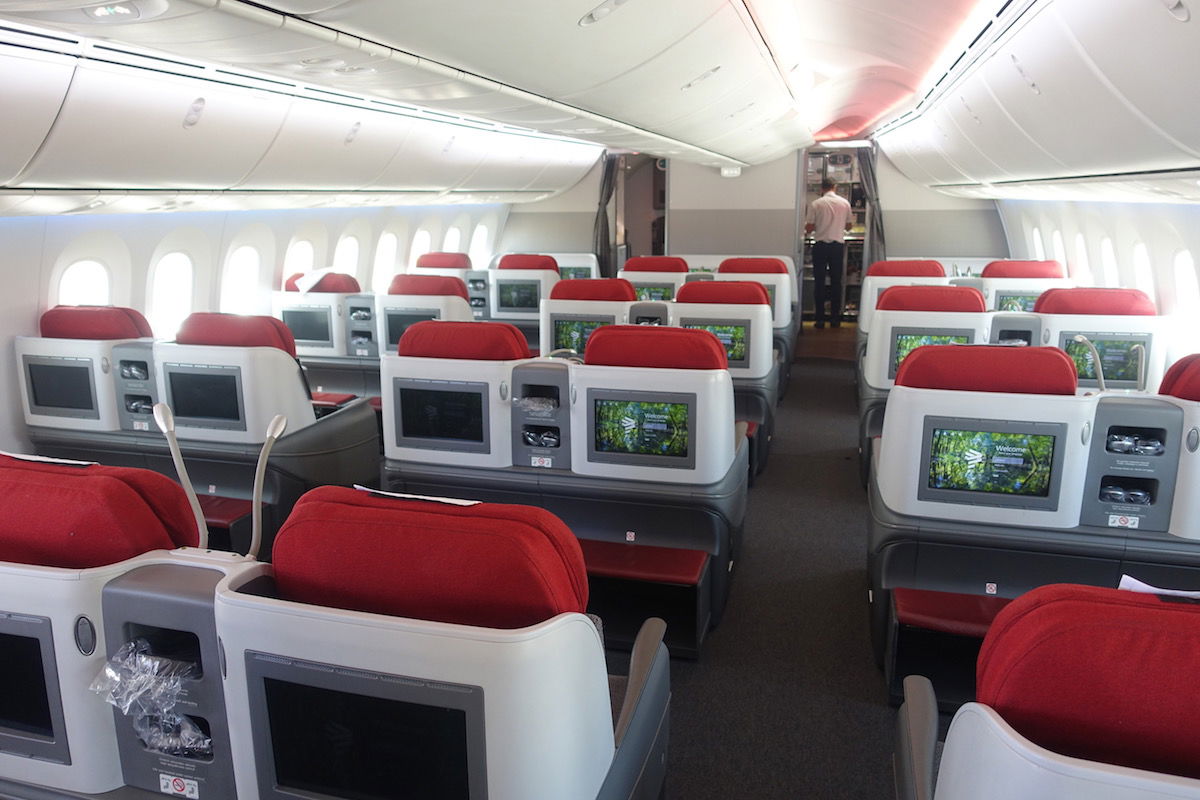A couple of weeks ago Avianca, one of Latin America’s largest airlines, filed for Chapter 11 bankruptcy protection. Now LATAM, Latin America’s largest airline, has done the same.
In this post:
LATAM files for Chapter 11 bankruptcy protection
LATAM Airlines Group, including affiliates in Chile, Peru, Colombia, Ecuador, and the United States, today initiated a voluntary reorganization and restructuring of debt.
This is being done under Chapter 11 bankruptcy protection in the United States, with the support of the Cueto and Amaro families and Qatar Airways, which are among the largest shareholders of LATAM (in addition to Delta Air Lines).
COVID-19 has had an unprecedented impact on the airline industry, and this process provides LATAM an opportunity to work with creditors and stakeholders to reduce debt, access new sources of financing, and continue operating (with the exception of LATAM Argentina), while enabling the group to transform.
Roberto Alvo, CEO of LATAM, had the following to say about this development:
“LATAM entered the COVID-19 pandemic as a healthy and profitable airline group, yet exceptional circumstances have led to a collapse in global demand and has not only brought aviation to a virtual standstill, but it has also changed the industry for the foreseeable future.
We have implemented a series of difficult measures to mitigate the impact of this unprecedented industry disruption, but ultimately this path represents the best option to lay the right foundation for the future of our airline group. We are looking ahead to a post-COVID-19 future and are focused on transforming our group to adapt to a new and evolving way of flying, with the health and safety of our passengers and employees being paramount.”
 LATAM 787-9
LATAM 787-9
What does this mean for the future of LATAM?
LATAM and affiliates will continue flying throughout this process as much as conditions permit, and any frequent flyer perks with LATAM will continue to be active. Chapter 11 bankruptcy is very different than liquidation. Rather it’s a legal framework under which LATAM and affiliates have the opportunity to resize operations and reorganize balance sheets.
As the airline describes it, this will allow LATAM to emerge more agile, resilient, and sustainable.
 LATAM 787-9 business class
LATAM 787-9 business class
LATAM has already secured additional funding
LATAM currently has approximately $1.3 billion in cash on hand. On top of that, the group has secured the financial support of shareholders, including the Cueto and Amaro families, as well as Qatar Airways, for an additional $900 million in debtor-in-possession financing.
Unsurprisingly here’s no extra funding from Delta Air Lines, even though they’re a major stakeholder (the airline paid more for 20% of LATAM a few months ago than the entire airline is worth now). The one exception is that Delta has paid $62 million to undo part of the A350 deal between the two airlines.
LATAM is also in discussions with Brazil, Chile, Colombia, and Peru, to secure additional financing.
 LATAM 787-8 business class
LATAM 787-8 business class
Bottom line
LATAM has filed for Chapter 11 bankruptcy protection. It should be business as usual for passengers, as the airline will continue operating. Global aviation is obviously being hit extremely hard. This isn’t the first airline bankruptcy filing we’ve seen, and it won’t be the last either.





I told you, you didn't listen, all those cheap Business fares in March, April, May, I told you to beware and you did't bloody listen, now we will have to hear from all the victims... the bleating, the whining, the screaming like stuffed pigs, the whingeing.....
You fools, you should have listened when I told you to beware and not buy those cheap bucket fares from this tinpot, third world South American airline.
...I told you, you didn't listen, all those cheap Business fares in March, April, May, I told you to beware and you did't bloody listen, now we will have to hear from all the victims... the bleating, the whining, the screaming like stuffed pigs, the whingeing.....
You fools, you should have listened when I told you to beware and not buy those cheap bucket fares from this tinpot, third world South American airline.
I mean seriously, look at them, they have been through Star Alliance at one point, then One World, and as soon as Delta aligned them with Sky Team the alarm bells should have been ringing.... why the hell did you not think One World and Star Alliance dumped them?
But no, you still bought cheap Business tickets in the last few months, and now you'll expect me to have empathy or sympathy because you can't get your money back from a recalcitrant South American, very dodgy airline.
Don't even think about it. You dug your own grave, now lie the hell in it.
@Matt, thanks. Very helpful. Keep your comments coming.
American Airlines like: Yeah baby! Karma is B*tch!
Delta is like: Oh, holy sh*t!...
@Frederik -- Unfortunately, Korea's domestic COVID-19 response is unlikely to help Korean Air. Close to 75% of Korean Air's passenger volume is on international flights, and domestic containment efforts do nothing to help international passenger or flight volume, and may even hurt them as containment efforts continue to restrict international travel.
It will be interesting to see if Korea bails out Korean Air. If I recall correctly, Korean Air is largely owned and controlled by...
@Frederik -- Unfortunately, Korea's domestic COVID-19 response is unlikely to help Korean Air. Close to 75% of Korean Air's passenger volume is on international flights, and domestic containment efforts do nothing to help international passenger or flight volume, and may even hurt them as containment efforts continue to restrict international travel.
It will be interesting to see if Korea bails out Korean Air. If I recall correctly, Korean Air is largely owned and controlled by Hanjin, and the largest creditor of Korean Air is Korea Development Bank. Hanjin also used to own and control Hanjin Shipping, which was Korea's largest international shipping company. Hanjin Shipping's largest creditor was also Korea Development Bank through various life support loans. In 2016, Hanjin Shipping was reeling and needed a bailout. Both Hanjin and Korea (through the Korea Development Bank or otherwise) decided at the last minute not to bail out Hanjin Shipping, resulting in the spectacular and disastrous failure of Korea's largest shipping company almost overnight.
Like Hanjin Shipping, Korean Air is on life support through a loan from Korea Development Bank. If matters get worse, it could end up like Hanjin Shipping.
The upshot is there is very recent precedent for Korea declining to bail out the largest, flagship player in an industry key to international trade and connection.
Poor Delta, first Virgin and now LATAM, only Etihad has had worse luck recently with their partners. Korean should be ok at least, thanks to a great domestic response to the pandemic on behalf of their government. It is the Brazilian part of LATAM I would worry about.
What a shame! After all the splash they created with DL partnership and oneworld exit and blew off AA and IAG. I hope they at least realize now what a blunder they made in the last few months!
Rob— The short answer is maybe. With some exceptions, chapter 11 debtors can reject agreements. Once rejected, any damages arising from the debtor’s non-performance of the agreement typically will be a general unsecured claim that will be discharged once a chapter 11 plan is confirmed. So, LATAM could potentially back out of the agreement and discharge any resulting liability, freeing it to enter into new agreements with other airlines.
What happens with the Delta/Latam relationship now that Delta will no longer own any of the airline?
Yes, they bought a 20% stake a few months ago, but equity holders are usually wiped out in Chapter 11 with ownership transferring to debt holders in exchange for reduction of debt. Might the new creditor owners rescind the Delta arrangement?
American Airlines watching this whole drama unfold and realizing all of this happened only when Delta entered into this LATAM saga : ‘HAHAHAHAHA, I see no god up here, other than ME’
But seriously tho, QR is in really really DEEP trouble. like first, Air Italy, then COVID-19 and their exceptional losses during that period of time, since they continued to operate 15-16 hour flights with 20-30 passengers (?!) and some flights to Colombo and...
American Airlines watching this whole drama unfold and realizing all of this happened only when Delta entered into this LATAM saga : ‘HAHAHAHAHA, I see no god up here, other than ME’
But seriously tho, QR is in really really DEEP trouble. like first, Air Italy, then COVID-19 and their exceptional losses during that period of time, since they continued to operate 15-16 hour flights with 20-30 passengers (?!) and some flights to Colombo and Bangkok with 1 or 2 passengers, and then LATAM. Keep in mind, when everything was going right in 2019, QR had already posted a huuuuge loss, due to the blockade. Jeez, I really hope airlines make it out of the pandemic alive and i’m glad the statement ‘Most of the airlines would permanently cease operations by the end of May’ didn’t end up true. phew.
@Matt:
Great explanation! Thanks for breaking it down for us laypersons. I had the same question as StevenE, so this was great.
StevenE - It is actually pretty simple. Both the United States and Chile have adopted UNCITRAL's Model Law on Cross-Border Insolvency. This allows bankruptcy courts in the two countries to coordinate parallel insolvency proceedings and/or treat one proceeding as the "main proceeding" (such as the U.S. proceeding) while treating the other as an "ancillary proceeding" (such as any proceeding in Chile). The court where the ancillary proceeding is pending can--and typically does--defer to the main...
StevenE - It is actually pretty simple. Both the United States and Chile have adopted UNCITRAL's Model Law on Cross-Border Insolvency. This allows bankruptcy courts in the two countries to coordinate parallel insolvency proceedings and/or treat one proceeding as the "main proceeding" (such as the U.S. proceeding) while treating the other as an "ancillary proceeding" (such as any proceeding in Chile). The court where the ancillary proceeding is pending can--and typically does--defer to the main proceeding for consistency's sake (called "comity" in international law).
Because chapter 11 bankruptcy in the United States is a fairly unique and predictable insolvency regime, many foreign or predominantly foreign companies seek to avail themselves of chapter 11 rather than pursuing a plenary proceeding in their home country. Among other things, chapter 11 allows the company to continue operating, management stays in place absent compelling circumstances, the company can borrow additional money despite its insolvency, and there are powerful tools for shedding burdensome contracts, leases, and other obligations. Plus, chapter 11 has a concept called "cram down" where a company can confirm a plan of reorganization without the consent of many creditors. Many of these are features unique to chapter 11. Believe it or not, many countries do not have even have an insolvency proceeding where the company can continue as a going concern. In many countries, once the company becomes insolvent, it is required to liquidate.
I’d be interested to know how this all works being listed on both the NY and Santiago stock exchanges - sound very complicated